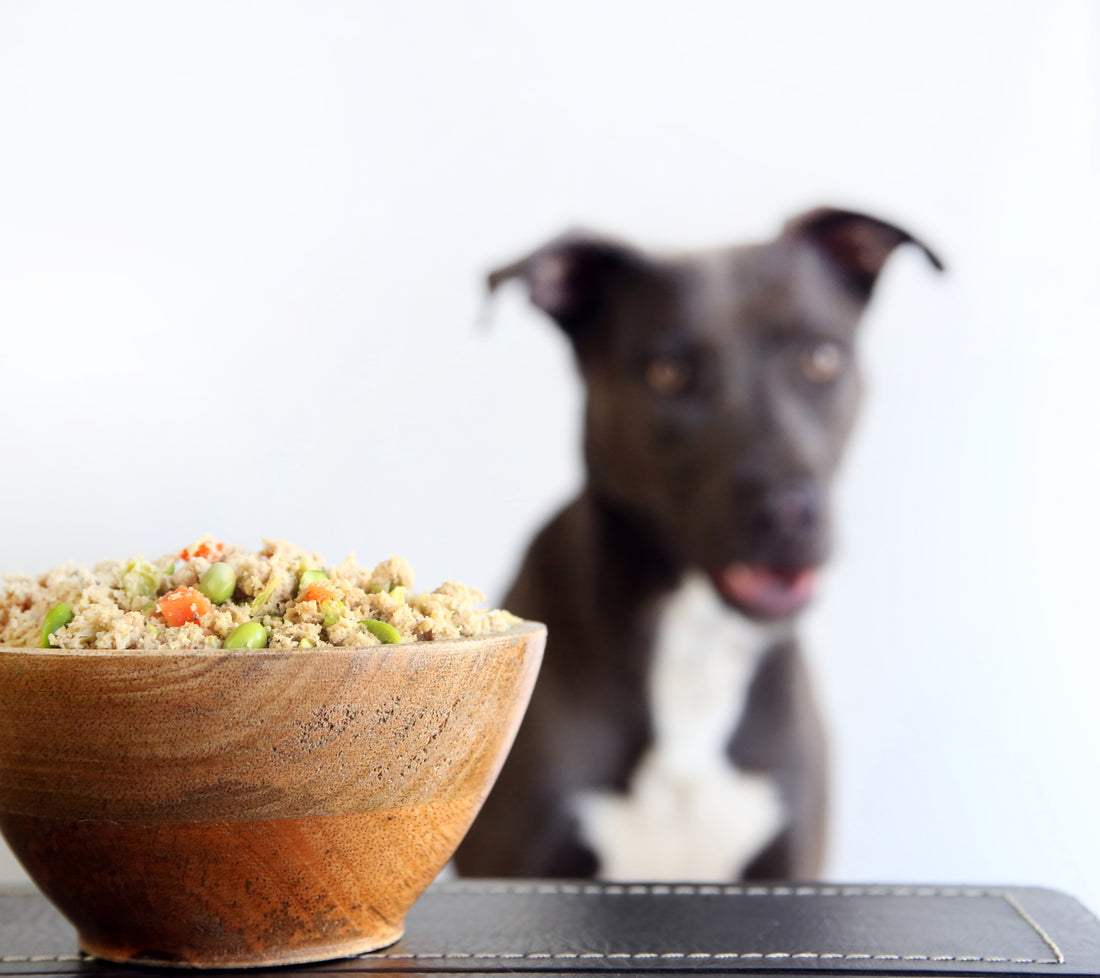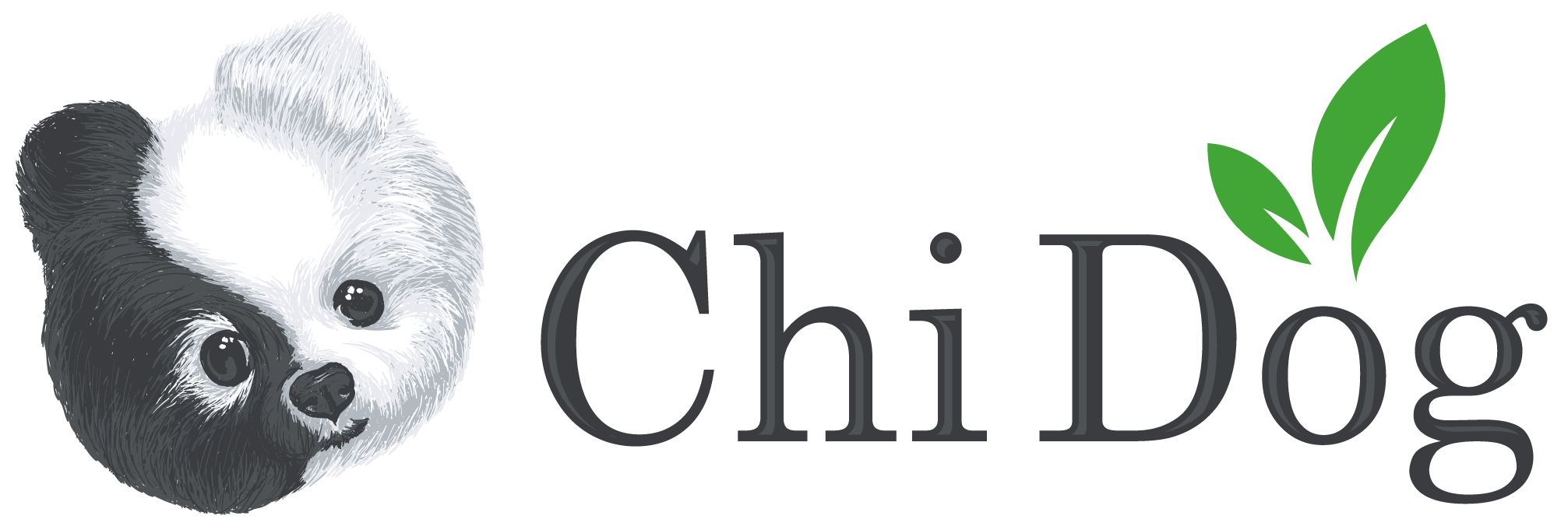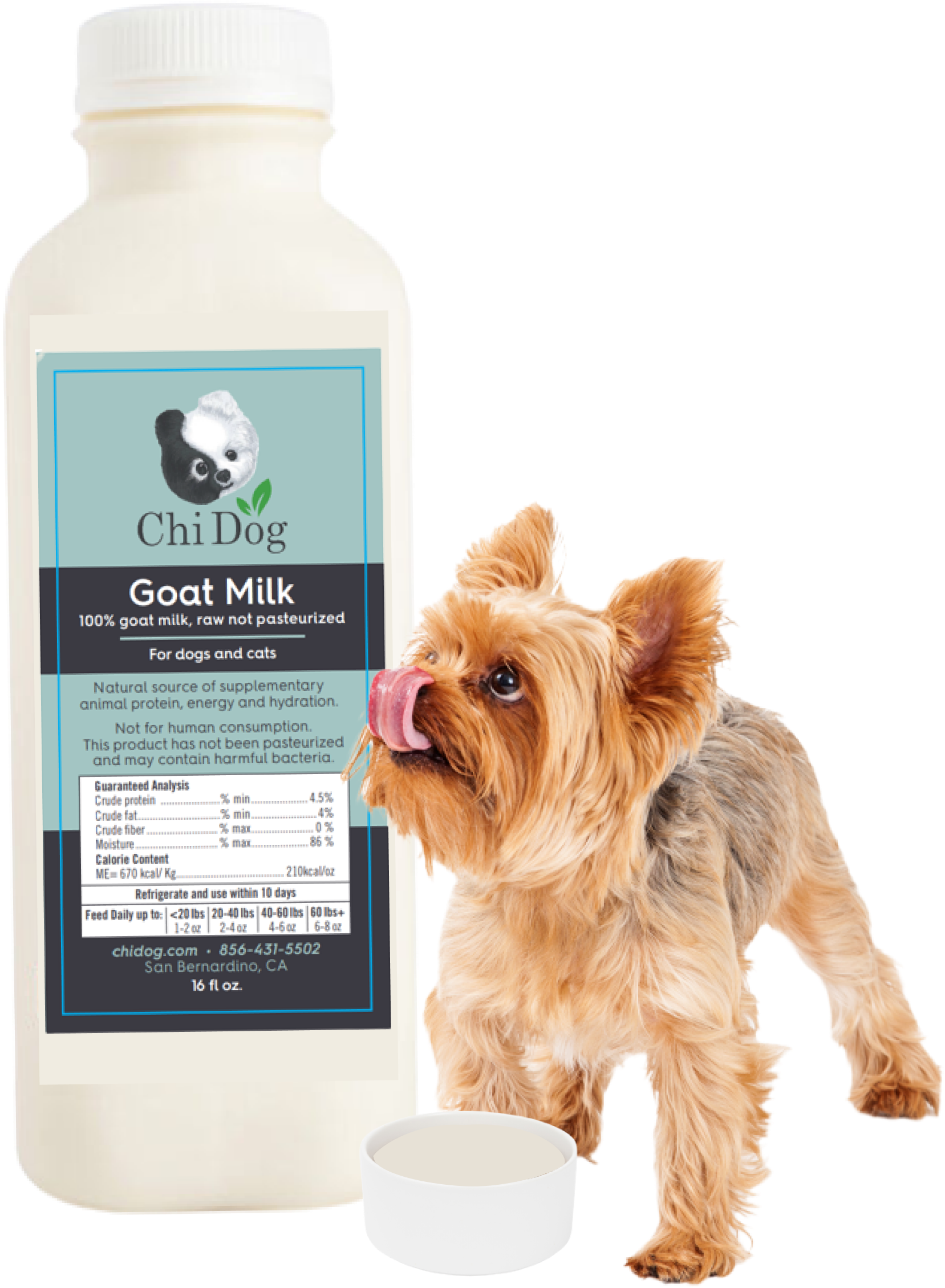
Dog Cancer Diet Recipe: The Best Dog Food for Cancer in Canines


The sight of your dog's wagging tail, the sound of their playful bark, the feel of their soft fur against your skin - these simple joys are the foundation of a bond between pet and parent that is truly irreplaceable.
But, when your cherished companion is diagnosed with cancer, it feels as though these precious moments are suddenly threatened. You feel your stomach sink when the vet gives you the news.
Then, your despair turns to action. You’re looking for ways to alleviate your furry friend's suffering, to enhance their quality of life, and above all, to battle this dreadful disease head-on. What role can a dog cancer diet recipe play in this journey? More specifically, what is the best dog food for cancer in canines?
Yes, what your dog eats can play a critical role in their cancer journey, possibly even extending their lifespan while providing some relief from the distressing symptoms of the disease. And in this guide to the best diet for dogs with cancer, we’ll help you figure out what to feed them.
Moreover, we will discuss additional supportive measures you can take to enhance your dog's comfort and lifespan. Let’s start with a brief explanation of canine cancer.

Understanding Dog Cancer and Its Impact on Canine Health
Cancer is, unfortunately, not an uncommon occurrence in the canine world. It is a complex disease where cells within your dog's body start to grow uncontrollably, invading surrounding tissues and often spreading to other parts of the body - a process known as metastasis.
The impact on a dog's health can be profound, affecting everything from their energy levels and appetite to their overall quality of life. From a Traditional Chinese Medicine (TCM) perspective, cancer is understood as a manifestation of fundamental imbalances within the body.
Imbalances can be in the form of excesses, deficiencies, or disruptions in the flow of Qi, the vital energy or life force that circulates throughout the body.
The TCM approach to cancer treatment, therefore, seeks to restore balance, strengthen the body's self-healing capacity, and target the root cause of disease alongside managing its symptoms. We’ll talk more about the role a canine cancer diet plays here later on. First, let’s look at the types and symptoms/diagnoses of canine cancer.
The Prevalence and Types of Cancer in Dogs
According to statistics, approximately one in three dogs will be diagnosed with cancer at some point in their lives, making it one of the leading causes of death in dogs, particularly those over the age of ten. Just as in humans, dogs can suffer from various types of cancer, each with its unique set of symptoms and prognosis.
Common forms of cancer in dogs include lymphoma (affecting the lymph nodes), mast cell tumors (skin cancer), hemangiosarcoma (cancer of the blood vessels), osteosarcoma (bone cancer), and melanoma (a type of skin cancer that can also affect the mouth and toes).
Symptoms and Diagnosis of Cancer in Dogs
The symptoms of cancer in dogs can be varied and depend largely on the type and stage of cancer.
Some common signs to watch out for include:
- Unusual lumps or swellings that grow over time
- Sores that do not heal
- Unexplained weight loss
- Loss of appetite
- Difficulty eating or swallowing
- Bleeding or discharge from any body opening
- Offensive odor
- Persistent lameness or stiffness
- Difficulty breathing, urinating, or defecation
- Decrease in stamina
If you notice any of these symptoms, it's crucial to consult your vet promptly. They may conduct a series of diagnostic tests, including blood tests, urinalysis, X-rays, ultrasounds, or biopsies, to accurately diagnose the condition and determine the best course of treatment.
But unfortunately, western medicine focuses on aggressively attacking cancer in dogs through drugs and harsh treatments. Eastern medicine, however, takes a different role - which is where a canine cancer diet comes into the equation.

The Role of a Dog Cancer Diet in Providing Relief and Extending Lifespan
When it comes to cancer treatment in dogs, a balanced and targeted diet can play an essential role. Just as in humans, what your pet eats can greatly influence their body's ability to fight the disease, handle the side effects of treatment, and ultimately improve their quality of life and longevity.
From a Traditional Chinese Medicine perspective, diet is seen as a critical component of healthcare. TCM believes that every food has unique properties that can influence the balance of energies in the body, thereby promoting health or contributing to disease.
A well-curated cancer diet can help restore this balance, bolster the immune system, inhibit tumor growth, and support overall well-being. But what exactly can a canine cancer diet do?
How Can Following a Diet for Dog With Cancer Help Your Pet?
Firstly, a proper dog cancer diet provides the nutrients required to maintain your pet's strength and weight. Many dogs with cancer experience cachexia, a condition of severe weight loss and muscle wasting. Providing a nutrient-rich diet helps counteract this condition, enabling your pet to better withstand cancer treatments.
Secondly, certain foods have anti-cancer properties. For example, the omega-3 fatty acids found in fish oil have been shown to slow the growth of cancer. Similarly, diets high in quality protein can help to maintain muscle mass, while antioxidants can support the immune system and reduce inflammation.
In terms of Traditional Chinese Medicine, specific foods can be chosen to help rebalance your dog's Qi, Yin, Yang, and Blood - the four pillars of health in TCM. For example, foods that support Qi can boost energy levels and vitality, while those that nourish Blood can help with recovery and rejuvenation.
Understanding the Limitations of a Dog Cancer Diet
Now, we want to set your expectations for a canine cancer diet by talking about limitations in feeding your pet the best dog food for cancer. Is a canine cancer diet going to cure your pet’s condition entirely on its own? It’s unlikely.
While a tailored diet can make a significant difference in the management of cancer in dogs, it's essential to understand that it is not a cure-all. Diet is one tool in an integrated approach to cancer care that should also include appropriate veterinary treatments, such as surgery, chemotherapy, radiation, or immunotherapy.
Furthermore, each dog is unique, and what works for one may not work for another. A dog's breed, age, type and stage of cancer, overall health, and current treatments should all be considered when creating a personalized diet.
That's where the expertise of veterinarians, especially those experienced in TCM and nutritional therapy, can be invaluable.
At Chi Dog, we bring decades of experience to the table and are eager to help you provide a comfortable healing environment for your pet - or at the very least, improve their quality of life and extend it as long as possible. With that being said, what is the best dog cancer diet recipe?

So, What is the Best Dog Cancer Diet?
Choosing the best diet for a dog with cancer involves understanding the specific nutritional needs of a canine facing this health challenge.
Just like humans, dogs require a diet rich in quality protein, essential fatty acids, vitamins, and minerals. However, when it comes to cancer, certain tweaks can prove significantly beneficial. So, what should you look for in the best canine cancer diet?
What to Look for in a Canine Cancer Diet: Nutritional Requirements, Foods to Avoid/Include, and More
A quality diet for a dog with cancer should prioritize high-quality, easily digestible proteins. Proteins support muscle mass and promote healing. Foods rich in omega-3 fatty acids, such as fish oil, are also beneficial due to their anti-inflammatory properties.
Antioxidants are crucial in any cancer diet for their potential to combat oxidative stress and support overall immune function. Foods rich in vitamins C, E, and beta-carotene, like berries, carrots, and spinach, are excellent antioxidant sources.
When it comes to what to avoid, processed foods and those high in simple sugars should be limited. These foods can lead to inflammation and potentially promote cancer cell growth.
From a Traditional Chinese Medicine perspective, the diet should balance your dog's Qi, Blood, Yin, and Yang energies. For example, warming foods can be useful for dogs with a Cold constitution, while cooling foods may benefit those with a Hot constitution.
Now, should you create your own dog cancer diet recipe or buy the best dog food for cancer and feed your pet that? Let’s look at both sides of the coin below…
Should You Create Your Own Dog Cancer Diet Recipe or Buy Pre-Formulated Meals?
While it's possible to create a homemade cancer diet for your dog, it's crucial to ensure all nutritional needs are met. This can be challenging without the help of a professional.
If you really want to be the best pet parent possible, you’re better off investing in their health and well-being by purchasing the best dog food for dogs with cancer. At Chi Dog, we provide pre-formulated meals designed with the wisdom of Traditional Chinese Medicine and the expertise of experienced veterinarians.
Our holistic dog food ensures balanced nutrition, proper portion sizes, and high-quality ingredients, taking the guesswork out of feeding your dog. Our dog cancer diet recipes are carefully formulated to help your dog fight cancer and improve their quality of life.
And, while you came here specifically for the best food for dog with cancer, our recipes can address a myriad of other health concerns. From the best diet for a dog with liver disease to the best diet for dog with pancreatitis, we can help you take charge of your pet’s health.
We offer two diets ideal for dogs diagnosed with cancer: the Earth Diet and the Metal Diet. Both diets are grounded in TCM principles and are designed to restore balance to your dog's system. Below, we’ll get into each in greater detail and help you pick the right one for your pup’s journey.
The Best Dog Food for Cancer at Chi Dog: Feed Your Pet the Metal Diet or Earth Diet to Improve Quality of Life
The Earth Diet is light and low-fat, with anti-cancer properties. It aids in managing obesity and inflammation, and supports cancer remission or prevention. The Earth Diet includes ingredients like egg, tofu, sweet potato, spinach, green peas, and mushroom, which are all light, nutritious, and easily digestible.
The Metal Diet, on the other hand, is a hydrating, low-carb, strength-building diet that aids in managing weight gain, constipation, lung disease, diabetes, and more. Ingredients include beef, white potato, bok choy, kale, and carrots, providing a hearty meal for your pet.
If you’re not sure which is right for your pet specifically, don’t hesitate to get in touch with us. As proud pet parents ourselves and veterinary professionals well-versed in TCM, we’re eager to assist you in jumpstarting your pet’s healing journey.
With that said, here are some tips on ensuring a smooth transition to a canine cancer diet.
Tips for Ensuring a Smooth Transition Into Your Dog’s Diet
When transitioning your dog to a new diet, it's best to do it gradually over a week or so. Start by mixing a small amount of the new food with your dog's current food, slowly increasing the proportion of the new diet each day. Eventually, they’ll eat their new diet only.
Aside From Feeding the Best Dog Food for Cancer, Here’s How to Provide Relief and Extend the Lifespan
While feeding the best diet for dog with cancer is fundamental, several other factors come into play when managing your dog's cancer journey. Comprehensive care goes beyond just what's in their food bowl.
The Value of Regular Vet Checkups and Monitoring
Routine veterinary care is essential when managing your dog's cancer. Regular checkups allow for close monitoring of your dog's progress and help ensure any necessary adjustments to treatment plans can be made promptly.
Your vet can provide valuable insights into your dog's overall health and well-being, helping to catch and address any potential complications early.
The Role of Exercise and Mental Stimulation
Maintaining an active lifestyle is crucial. Exercise not only helps manage your dog's weight (important for preventing other health issues), but it can also strengthen their immune system and improve their overall mood and quality of life.
Similarly, mental stimulation is just as important. Interactive toys, puzzle feeders, and regular training sessions can help keep your dog's mind sharp and engaged.
Remember, the level and intensity of exercise should be adjusted based on your dog's health status and the progression of the disease. Always consult with your veterinarian about appropriate exercise regimes.
Alternative Therapies and Treatments to Complement the Dog Cancer Diet
Apart from conventional treatments, complementary therapies, such as acupuncture, massage, and herbal supplements, may provide additional relief and comfort to your dog during this challenging time.
There’s even reason to believe CBD can play a role in your pet’s healing journey - fighting cancer and its tumors head on while improving quality of life along the way.
These therapies, when used in conjunction with a balanced diet and regular vet care, can provide a holistic approach to cancer management.
Parting Thoughts on the Best Diet for Dog With Cancer
While a cancer diagnosis for your dog is enough to break your heart, don’t rush to conclusions or accept the worst-case scenario. As their parent, it’s up to you to help them fight this battle to the best of their ability - and what you feed them plays a key role in this journey.
Armed with the best dog food for cancer and a relentless treatment approach, you can enhance your pet’s quality of life during this tough time. You may be able to extend their lifespan despite an aggressive diagnosis - and in some cases, beat the cancer for good.
At Chi Dog, we understand the emotional toll a cancer diagnosis can take. We're dedicated to supporting you and your beloved pet during this challenging time by providing diets for dogs with cancer formulated with the wisdom of Traditional Chinese Medicine, crafted to promote healing, strengthen your dog's body, and make them more comfortable.
As you navigate the complexities of canine cancer, know that you're not alone. We're with you every paw-step of the way, striving to make your dog's life healthier, happier, and more comfortable.
_________________________________________________________________________
About the author
Dr. Susan Bohrer has been a practicing veterinarian for 15 years teaching home cooking techniques to clients. Dr. Bohrer is Certified in Traditional Chinese Veterinary Medicine’s Herbal Therapy, Acupuncture and Food Therapy.
Download PDF here



